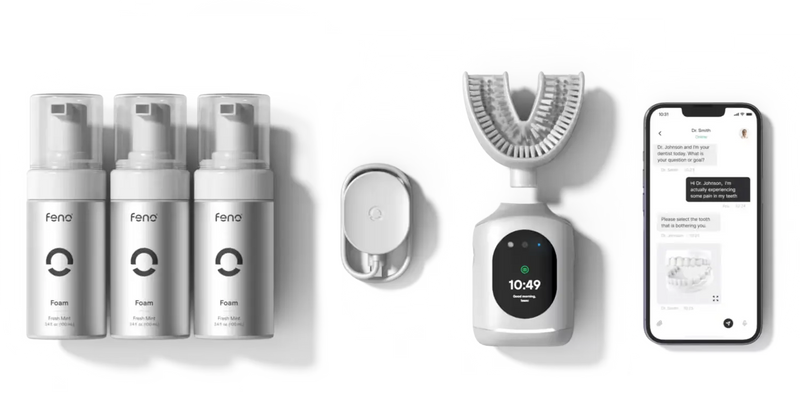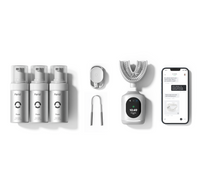
From Forgetting to Floss to Avoiding the Dentist: ADHD's Impact on Your Smile
Essential Takeaways
- People with ADHD have significantly higher rates of dental problems due to executive function challenges, but structured routines and targeted strategies can dramatically improve oral health outcomes.
Why It Matters: ADHD affects executive function, making it harder to maintain consistent oral hygiene routines. Time blindness and difficulty with routine-building lead to skipped brushing, forgotten flossing, and missed dental appointments creating a cascade of oral health problems.
(Healthcare, 2024)
Research consistently finds people with ADHD have higher DMFT scores (Decayed, Missing, and Filled Teeth), more plaque buildup, and increased gingival bleeding compared to those without ADHD. Studies also show higher rates of periodontitis and bruxism (teeth grinding), often linked to stimulant medications and stress management difficulties.
"Children with ADHD had nearly 12 times the odds of having a high DMFT score than children who did not have ADHD (OR = 11.98; 95% CI 1.13, 91.81). No other factors were significant predictors." - Caries Res. 2004
Helpful Steps
- Set multiple phone alarms for brushing and flossing times
- Keep toothbrushes in your car, office, and bag
- Use electric toothbrushes with built-in timer like the Feno Smartbrush
- Schedule dental appointments during your peak focus hours
- Ask about night guards if you grind your teeth
- Consider antimicrobial mouthwashes for extra protection
- Work with dental professionals who understand ADHD's impact on oral care
Bottom Line: ADHD significantly increases dental health risks through executive function challenges, but evidence-based systems and consistent routines can protect your smile and reduce long-term complications.

Feno Founders Edition Bundle
Advanced Oral Health in 20 Seconds with the Feno Smartbrush™
Get Yours Now!


